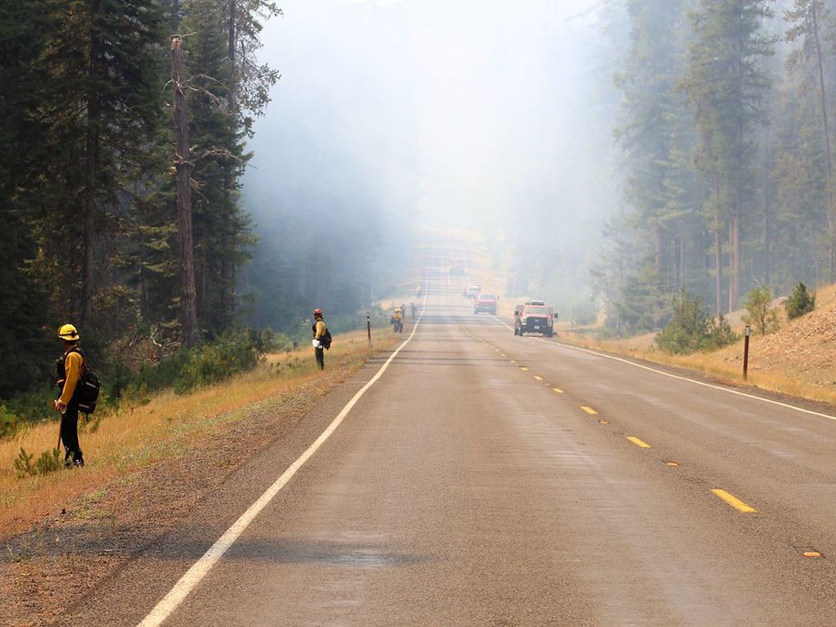| Title XI: Crop Insurance | |||
Title VIII: Forestry
What it does: Authorizes programs that allow the Forest Service to carry out forest health activities on the 193 million acres of national forests, an area about the size of Texas.
The Canadian wildfires that have spread smoke across the Midwest and eastern United States have brought home the threat of wildfires to regions that usually don’t see their results. The National Interagency Fire Center estimates that federal suppression costs totalled nearly $4.4 billion in 2021, well more than $1 billion higher than the previous record. The Forest Service’s share of that was $3.7 billion, also a record.

What’s in play: The forestry title looks to be relatively non-controversial. A fairly diverse set of about three dozen groups, from the Society of American Foresters to Defenders of Wildlife, have endorsed a broad swath of recommendations centered on a science-based approach.
“We support reforestation and afforestation efforts where ecologically appropriate but want to make sure that decisionmakers and the public understand the importance of ongoing maintenance of new and existing trees and forests – including monitoring, thinning, fuels reduction activities, and other management to optimize the suite of ecosystem services (including carbon sequestration and storage) that they provide,” says SAF spokesperson Danielle Watson.
Another request from stakeholders is to expand the Good Neighbor Authority that facilitates cooperation in timber projects on federal lands, to allow state and other partners to use revenue generated by those projects to pay for projects on non-federal lands. Groups also want to modify the the Conservation Reserve Program to allow landowners who planted trees using the program to re-enroll in CRP even if they harvest them.
Notable marker bills:
S.540 and H.R. 1236 – The Protect the West Act of 2023, led by Sen. Michael Bennet, D-Colo., and Rep. Jason Crow, D-Colo., would provide $20 billion in grants to state and local governments, tribes, special districts, and nonprofits to support restoration, drought resilience, and fire mitigation projects. Another $40 billion would go to a Restoration and Resilience Partnership Program.
S.1853 – Bennet's Healthy Forests Restoration Act would increase authorized funding levels for the Water Source Protection Program and the Watershed Condition Framework.
S.808 – The Expediting Forest Restoration and Recovery Act of 2023 proposed by Sen. John Thune, R-S.D., would expedite hazardous fuel or insect and disease risk reduction projects in national forests.






